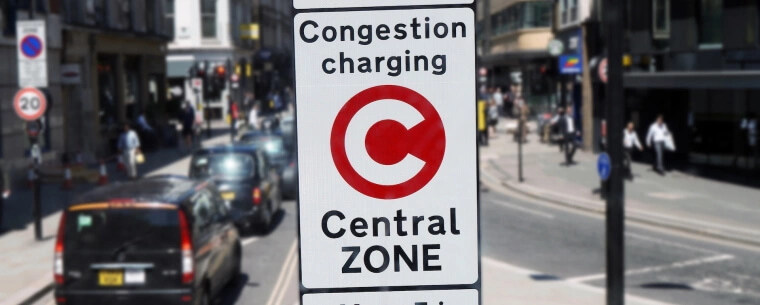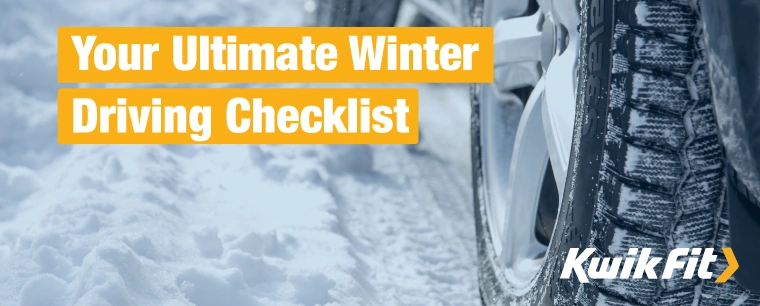Are Electric Cars Exempt from the Congestion Charge?
Jack Dreyer | Monday 14th March 2022 10:15am

In recent years, the UK has taken great strides towards making its roads greener.
Most successfully, we’ve seen the introduction of charges for vehicles that produce high emissions levels in particularly polluted areas like London. But what about the vehicles that hardly produce any emissions at all?
Electric cars are becoming an increasingly common sight on Britain’s roads. So much so, in fact, that 1 in 10 cars registered in 2020 was electric in some form. With this joint approach — congestion charges and electric vehicles — there may be some confusion. Are electric cars exempt from congestion charge?
Read on to find out.
What is the Congestion Charge?
Just in case you needed more clarification, the Congestion Charge is a formal charge that applies to vehicles in London’s Low Emission Zone (or ULEZ) between 7am and 10pm every day (except Christmas!).
Aiming to make urban areas cleaner, the charge discourages polluting vehicles from entering dense, inner city areas. Vehicles that produce emissions exceeding a certain amount are required to pay £15 a day and must pay within three days or face a fine of £160.
Almost all motorists must pay the charge unless they drive a motorbike or moped, or otherwise have a disability that’s included as a valid exemption.
What areas are included in the Congestion Charge?
The Congestion Charge applies to the entire area within London’s Inner Ring Road (including Westminster and the City of London itself). If you are in doubt as to whether your location falls in the Charge zone, use the postcode checker here.
In October 2021, the ULEZ (Ultra Low Emission Zone) expanded. You can find out more about the recent expansion in our blog.

Are electric cars exempt from the Congestion Charge?
In short, yes. As of January 2022, all full electric vehicles and plug-in hybrids are entirely exempt from congestion charge.
The Cleaner Vehicle Discount
The CVD (or Cleaner Vehicle Discount) applies to these vehicles since they do not produce high emissions levels that contribute to the pollution in urban areas.
Formerly known as the ULED (Ultra Low Emission Discount), the CVD is essentially an 100% discount for all vehicles that meet the Euro 6 emission standards.
These standards specify that vehicles must emit no more than 75g/km of CO2 and be capable of a minimum 20 mile electric-only range in order to receive a discount.
How to apply for the CVD
First of all, you should check if your vehicle qualifies. Check inside your logbook for the CO2 status of the car or, if you can’t find your logbook, check in with the dealership whether your vehicle is registered as fuel type electric.
If you can apply, it will cost £10 per vehicle as an upfront cost. It is important to remember that you must register your electric vehicle order for the discount to work, otherwise you will have to pay the daily fee or face a fine. This discount must be renewed annually.

Will electric cars always be exempt?
While, at the moment, electric and hybrid cars are fully exempt from the charge, that won’t always be the case.
The Congestion Charge is constantly being refined to raise the standards. On the 25th October 2021, for example, hybrid cars no longer qualified for the exemption. Next, on the 25th December 2025, the entire CVD itself will be removed, meaning that everyone has to pay the charge — even electric drivers.
After 2025, the only vehicles still granted exemption will be accredited breakdown motors, motorbikes, mopeds, buses, vehicles of disabled drivers, and emergency vehicles.
If you have any questions about your vehicle — electric, hybrid, or otherwise — simply get in touch with the experts at your local Kwik Fit centre who can point you in the right direction.
In the meantime, for the latest updates about electric vehicles, tyres, and MOTs, head over to the Kwik Fit blog.
Any facts, figures and prices shown in our blog articles are correct at time of publication.
Featured Articles
Is Your Car Battery Ready for Winter?
Monday 11th November 2024
Is the UK on the verge of ‘the coldest winter for 50 years?’ Even if El Niño doesn't hit the UK this winter, reduce the risk of a winter breakdown by making sure your car battery is winter-ready.
Your Ultimate Winter Driving Checklist
Monday 31st October 2022
Driving in the colder months presents many challenges. Breakdowns are far more common in winter, so make sure you’re prepared with these essentials.
How to Get Your Car Ready for Winter
Wednesday 28th September 2022
Winter can be a harsh season for your car but planning ahead by carrying out some basic maintenance and packing some essential kit should help you avoid a winter breakdown.







